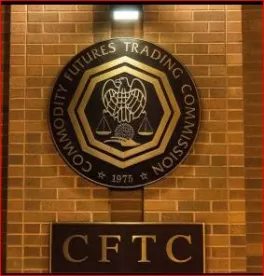The Commodity Futures Trading Commission (CFTC) has filed a civil enforcement action in the US District Court for the Western District of Texas charging Cornelius Johannes Steynberg and Mirror Trading International Proprietary Limited (MTI) (collectively, the defendants) with fraud and registration violations.[1] The action alleges that from May 2018 through March of 2021, the defendants orchestrated a multilevel marketing scheme to solicit bitcoin transfers from individuals into a centralized asset pool (the pool) under the guise of offering investment opportunities.[2] The defendants made these offerings without any CFTC registrations of any kind.[3] The CFTC alleges that MTI should have been registered as a commodity pool operator (CPO) while Steynberg should have been registered as an associated person (AP) of MTI.[4] This case is significant not only because of the magnitude of the alleged fraud, but also for the CFTC’s assertion of enforcement authority over the cryptocurrency industry at large.
MTI was publicly marketed as an opportunity for individuals to invest bitcoin into the defendants’ pool and earn profits from off-exchange leveraged trades.[5] The CFTC has alleged that the defendants’ scheme purportedly amassed ill-gotten gains of at least 29,421 Bitcoin at an estimated value of over $1.7 billion.[6] The CFTC further alleges that the defendants misappropriated all of the pool funds, which makes this enforcement “the largest to date charged by the CFTC involving [b]itcoin.”[7]
The CFTC’s enforcement authority over bitcoin was initially asserted in 2015 via In the Matter of: Coinflip, Inc., d/b/a Derivabit, and Francisco Riordan when the agency first deemed bitcoin a commodity under the Commodity Exchange Act (CEA).[8] In 2017, then-CFTC Chairman J. Christopher Giancarlo publicly branded bitcoin as “a commodity unlike any the Commission has dealt with in the past.”[9] In June 2022, US Securities and Exchange Commission (SEC) Chair Gary Gensler placed added responsibility on the CFTC when he stated that bitcoin is the clearest instance of a cryptocurrency meeting the criteria of a commodity.[10]
Although the CFTC’s authority over bitcoin and cryptocurrency at large has principally been accepted, this enforcement action presents an opportunity for the CFTC to formally augment their authority over bitcoin and the larger cryptocurrency space.
IN DEPTH
BACKGROUND
MTI was founded in 2019 under the laws of the Republic of South Africa.[11] Steynberg, however, globally marketed MTI’s commodity pool and allegedly engaged with individuals who were not eligible contract participants (ECPs).[12] The CFTC claims “at least 23,000 [MTI] participants from the United States and throughout the world” were conned into contributing to the pool.[13] Steynberg orchestrated this widespread deception by leveraging social media platforms, as well as other direct-to-consumer marketing strategies, to broadcast MTI as an on-ramp into foreign exchange (forex) trading opportunities where MTI participants could earn passive income via MTI’s collective trading of their assets for retail currency on a leveraged, margined or financed basis.[14] MTI’s lenient eligibility thresholds allowed anyone over the age of 18 and with a minimum commitment of $100 in bitcoin to qualify as an MTI participant.[15] MTI participants were led to believe that their bitcoin would be deposited into the pool and that trades facilitated by a “bot” would net up to 10% in profits per month.[16]
Even though MTI participants were assured that they could withdraw any deposited funds within 48 hours of a request, it was later discovered that no such trading “bot” existed—nor were any of the purported trades actually profitable—and that all bitcoin transactions occurred at the sole discretion of the defendants.[17] The CFTC alleges that the defendants sought to further their deception through the falsification of account statements and by effectively running a Ponzi scheme where principal deposits of later MTI participants were redistributed to earlier MTI participants to provide the illusion of “returns.”[18] The defendants further attempted to grow the pool by establishing an “affiliate” program through which MTI participants were influenced to recruit friends and family members to register with MTI in return for bonuses on the platform.[19] In reality, these new MTI participants were also depositing bitcoin into MTI accounts centrally controlled by Steynberg and devoid of any actual trading activity to generate organic profits.
BEGINNING OF THE END
By July 2020, the defendants were issued a cease-and-desist order by the Texas State Securities Board (TSSB) after the TSSB found that Steynberg had made materially misleading solicitations and that MTI’s operations were fraudulent.[20] Subsequently, in August 2020, the defendants lost access to their account at FXChoice, the primary broker meant to enable MTI’s forex trades. FXChoice had frozen the defendants’ account because of suspicions of fraud.[21] At this time, just 1,280 bitcoin (valued at $56 million) existed in the defendants’ FXChoice account, even though the defendants had amassed 29,421 Bitcoin over the duration of the scheme.[22] FXChoice ultimately transferred the frozen balance to South African bankruptcy liquidators in April 2021 pursuant to an order from the South African Financial Sector Conduct Authority (FSCA).[23] After FXChoice froze the defendants’ assets and refused to do any further business with the defendants, “Steynberg, individually and as an agent of MTI, represented to [MTI] participants that MTI would transfer all of the [p]ool’s trading accounts from FXChoice to a purported online broker identified as Trade300.”[24] Trade300 did not and does not exist.[25] Although Steynberg had attempted to evade South African law enforcement as a fugitive, he was recently arrested by INTERPOL in Brazil.[26]
CFTC ENFORCEMENT ACTION
The CFTC has alleged four counts against the defendants under the CEA. First, the CFTC has alleged that the defendants had participated in a fraudulent scheme involving unregistered forex trading.[27] The first count includes the unlawful trading of commodity futures, use of mail or other instrumentalities of interstate commerce in connection with retail forex transactions, illegal off-exchange leveraged or margined forex transactions with non-ECPs, and that Steynberg himself exercised direct and indirect control over MTI either in bad faith or knowingly causing MTI to violate the CEA.[28]
The second count alleges that Steynberg acted as an unregistered AP of MTI, which itself was operating as an unregistered CPO by soliciting, accepting or receiving funds or property from the public while engaged in a business of forex-based investment transactions.[29] Under this second count, each act of fraudulent solicitation, misappropriation and false statement is a separate and distinct violation.[30]
The third count alleges a failure to operate a commodity pool as a separate legal entity, failure to receive funds in the pool’s name and a commingling of pool funds.[31]
The fourth and final count alleges that the defendants failed to register as a CPO or as an AP despite their continued operations qualifying them as such.[32]
SIGNIFICANCE IN THE EVOLVING REGULATORY ENVIRONMENT
The compulsory adaptation of regulatory schemes to the public’s adoption of emerging technologies is a reoccurring theme in American jurisprudence. The regulation of cryptocurrency is no different. The timing of this enforcement action dovetails with CFTC Chairman Rostin Benham’s public push to seek additional resources for the CFTC and marks a prime opportunity to show the capacity of the agency as it concerns the regulation of cryptocurrency markets.[33] This enforcement action also coincides with the recently proposed Financial Innovation Act (FTA). The FTA is a bipartisan effort from the duo of Senator Cynthia Lummis (R-WY) and Senator Kirsten Gillibrand (D-NY) who aim to pass a federal bill that will establish guardrails around the cryptocurrency industry.[34] The FTA suggests a categorization of cryptocurrencies as commodities, bringing cryptocurrency further into the realm of the CFTC’s authority.[35] Weeks before Steynberg’s enforcement action, at the Chainalaysis Links conference, CFTC Chairman Benham publicly reiterated the need for the CFTC to have additional authority to regulate cryptocurrencies.[36]
Enforcement actions such as this present a tangible test as to the CFTC’s ability to discipline and mature the cryptocurrency industry. At a time when cryptocurrency scams are seemingly everywhere, with more than 46,000 individuals collectively losing over $1 billion in 2021 alone, the CFTC has positioned itself to be the policing authority over this once-touted “wild west” of an industry.[37] The outcome of this most recent CFTC enforcement action will not only influence the agency’s credibility among consumers, but it could also chart the course as to how much power policymakers bestow in the CFTC moving forward.
Aristotle Mannan, a summer associate in the Boston office, also contributed to this article.





 />i
/>i

